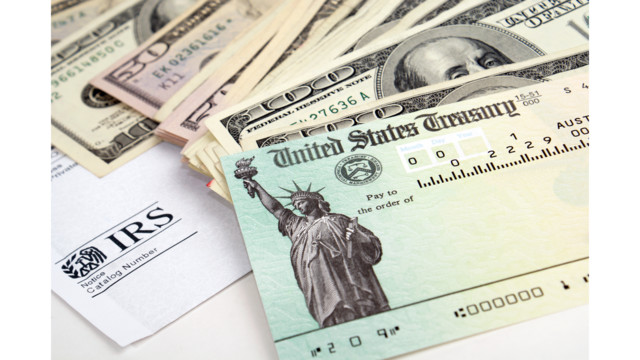The Internal Revenue Service will be sending out $1.2 billion in refunds and credits in September to millions of American individuals and businesses, the agency has announced.
The move is intended as relief from late penalties that many Americans may have been assessed for 2019 and 2020 tax returns, and will now be receiving them as a refund or tax credit, according to IRS Notice 2022-36 (PDF).
Besides providing relief to both individuals and businesses impacted by the pandemic, this step is designed to allow the IRS to focus its resources on processing backlogged tax returns and taxpayer correspondence to help return to normal operations for the 2023 filing season.
“Throughout the pandemic, the IRS has worked hard to support the nation and provide relief to people in many different ways,” said IRS Commissioner Chuck Rettig. “The penalty relief issued today is yet another way the agency is supporting people during this unprecedented time. This penalty relief will be automatic for people or businesses who qualify; there’s no need to call.”
The relief applies to the failure to file penalty. The penalty is typically assessed at a rate of 5% per month and up to 25% of the unpaid tax when a federal income tax return is filed late. This relief applies to forms in both the Form 1040 and 1120 series, as well as others listed in Notice 2022-36 PDF, posted today on IRS.gov.
To qualify for this relief, any eligible income tax return must have been be filed on or before September 30, 2022.
In addition, the IRS is providing penalty relief to banks, employers and other businesses required to file various information returns, such as those in the 1099 series. To qualify for relief, the notice states that eligible 2019 returns must have been filed by August 1, 2020, and eligible 2020 returns must have been filed by August 1, 2021.
Because both of these deadlines fell on a weekend, a 2019 return will still be considered timely for purposes of relief provided under the notice if it was filed by August 3, 2020, and a 2020 return will be considered timely for purposes of relief provided under the notice if it was filed by August 2, 2021. The notice provides details on the information returns that are eligible for relief.
The notice also provides details on relief for filers of various international information returns, such as those reporting transactions with foreign trusts, receipt of foreign gifts, and ownership interests in foreign corporations. To qualify for this relief, any eligible tax return must be filed on or before September 30, 2022.
Relief is Automatic – No Additional Filing Necessary
The penalty relief is automatic, the agency said. This means that eligible taxpayers need not apply for it if they have already filed their returns for those years, but those returns had been late. Those who were assessed the late penalties, but had not yet paid them will have those fees abated. If a taxpayer has already paid them, they will receive a credit or refund.
As a result, nearly 1.6 million taxpayers who already paid the penalty are receiving refunds totaling more than $1.2 billion. Most eligible taxpayers will receive their refunds by the end of September.
Penalty relief is not available in some situations, such as where a fraudulent return was filed, where the penalties are part of an accepted offer in compromise or a closing agreement, or where the penalties were finally determined by a court. For details, see Notice 2022-36 PDF, available on IRS.gov.
This relief is limited to the penalties that the notice specifically states are eligible for relief. Other penalties, such as the failure to pay penalty, are not eligible. But for these ineligible penalties, taxpayers may use existing penalty relief procedures, such as applying for relief under the reasonable cause criteria or the First Time Abate program. Visit IRS.gov/penaltyrelief for details.
“Penalty relief is a complex issue for the IRS to administer,” Rettig said. “We’ve been working on this initiative for months following concerns we’ve heard from taxpayers, the tax community and others, including Congress. This is another major step to help taxpayers, and we encourage those affected by this to review the guidelines.”
Thanks for reading CPA Practice Advisor!
Subscribe Already registered? Log In
Need more information? Read the FAQs
Tags: Accounting, Income Taxes, IRS, Taxes




